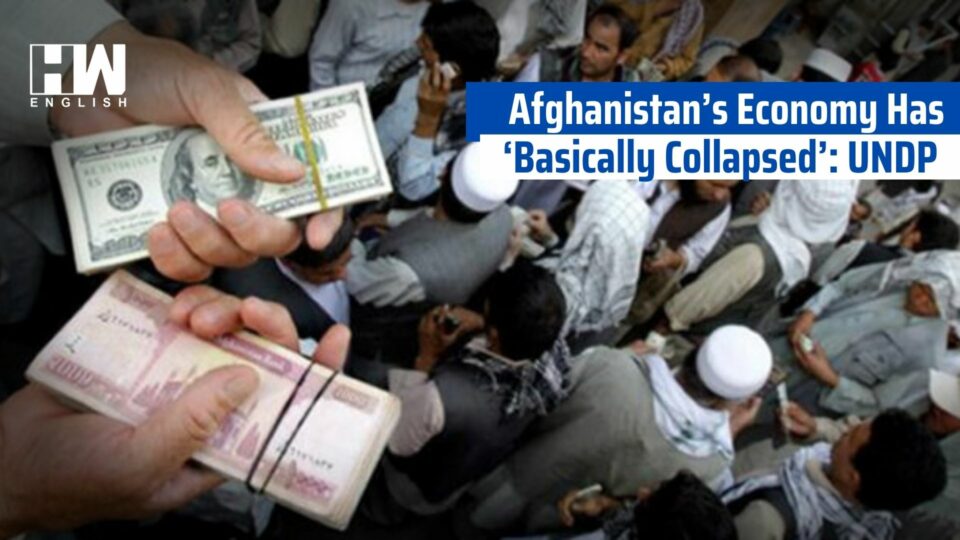The Afghan economy and especially regions affected by the devastating earthquakes in October last year, “are still hurting”, the UN Development Programme (UNDP) said on Thursday, as restrictions on women and girls continue to thwart basic rights and economic progress.
Kanni Wignaraja, Director of UNDP’s Regional Bureau for Asia and the Pacific, who recently visited the country, told correspondents in New York that 69 per cent of Afghans are “subsistence insecure” – meaning they do not have enough basic resources.
“Something that really hit me … was the harsh impact of continuous natural disasters,” she said, adding that many parts of Afghanistan are facing “dramatic” scarcity of water further setting back development efforts.
Lights out
Since the takeover by the Taliban in 2021, the Afghan economy has contracted by 27 per cent, leading to economic stagnation, according to UNDP. Unemployment has doubled and only 40 per cent of the population has access to electricity.
Sectors such as finance have “basically collapsed” and there are no major sources of economic activity such as exports or public expenditure, leaving small and medium enterprises (SMEs) and farmers as the lifeblood of the faltering economy.
Ban on girls’ education
She also voiced concern over the situation of women and girls.
There have been severe restrictions on women imposed by the Taliban, such as on their dress code and employment in various sectors.
While they can work without restriction in sectors such as health or nursing, their employment in the public sector dropped even further to about six per cent, Ms. Wignaraja said.
“The biggest challenge is the continued edict that bans girls’ education. Not being able to move forward after the sixth grade is a major stumbling block,” she added.
“Last year, no girl graduated the twelfth grade so how are they going to jump from sixth grade to moving into technical colleges or universities need for the medical field?” she exclaimed.
Local economy reeling
The UNDP official also noted the challenges facing local economies and the lack of capital, especially in the private sector.
UNDP is supporting microfinance initiatives, but with no cash flowing through the system, results are not at the level and scale required to spur growth.
She expressed hope that recent funds from the World Bank for climate projects could prompt other global climate cash investments.
“We can still work directly with the community to make this happen,” she said.
Situation in Herat
Ms. Wignaraja also visited Herat province, the epicentre of last October’s earthquakes.
UNDP
“Just driving through villages and talking to villagers, there is a huge contrast,” she said, noting that there are whole villages still living in tents without access to water and those that are starting to build permanent structures.
“For me the bottom line is that we have to let household economies and local economies pick back up. People do not want to live in tents, they cannot survive the sandstorms in tents,” she added.
Supporting women-led business
In conclusion, the UNDP official highlighted the agency’s support to some 75,000 women-owned and women-led micro and small businesses.
“They in turn employ about, on average, six other women and young people. Each of them feeds a household of ten,” she said, noted that in total about 4.5 million people benefit.
“We spend on average $42 a month per women’s business – that’s it,” she added, underscoring the resilience and boldness of women entrepreneurs.
Overall, with women farmers and traders, as well as direct cash support and household social protection prorgrammes, UNDP has reached one quarter of women across Afghanistan, she said.
“The story of this country will come back through their boldness and efforts,” she concluded.
As an independent media platform, we do not take advertisements from governments and corporate houses. It is you, our readers, who have supported us on our journey to do honest and unbiased journalism. Please contribute, so that we can continue to do the same in future.

